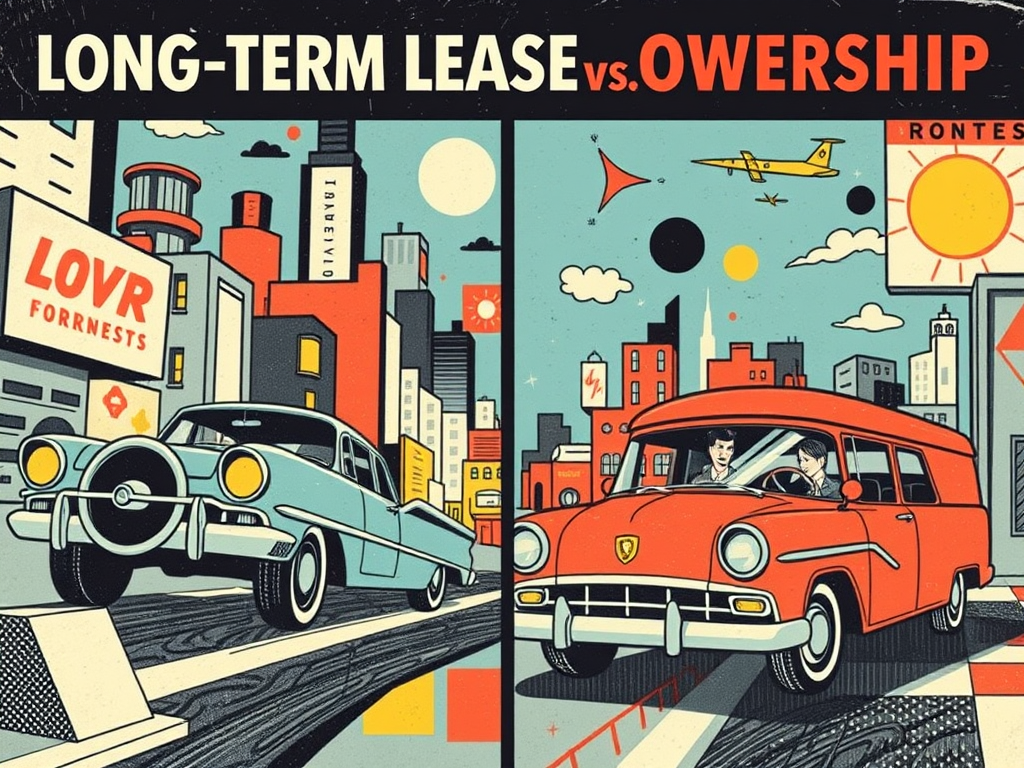
Leasehold vs. Freehold: Does a Long-Term Lease Count for Golden Visa?
Reading time: 15 minutes
Table of Contents
- Introduction
- Understanding Leasehold and Freehold Properties
- Golden Visa Programs: An Overview
- Long-Term Leases and Golden Visa Eligibility
- Economic Implications of Leasehold vs. Freehold for Golden Visas
- Case Studies: Countries with Golden Visa Programs
- Legal Considerations and Potential Risks
- Investment Strategies: Leasehold vs. Freehold for Golden Visa Applicants
- Future Trends in Golden Visa Programs
- Conclusion
- FAQs
Introduction
In the ever-evolving landscape of global investment and immigration, the concept of Golden Visa programs has gained significant traction. These initiatives, designed to attract foreign investment and stimulate economic growth, have become a focal point for both investors and policymakers. As we delve into the intricacies of these programs, a critical question emerges: Does a long-term lease count towards Golden Visa eligibility, and how does it compare to freehold ownership?
This comprehensive analysis aims to shed light on the nuances of leasehold versus freehold properties within the context of Golden Visa programs. We’ll explore the economic implications, legal considerations, and investment strategies that shape this complex issue. By examining real-world case studies and future trends, we’ll provide valuable insights for investors, policymakers, and economic analysts alike.
Understanding Leasehold and Freehold Properties
Before we delve into the specifics of Golden Visa programs, it’s crucial to establish a clear understanding of leasehold and freehold properties. These two forms of property ownership have significant implications for investors and can greatly impact the eligibility criteria for Golden Visa programs.
Freehold Properties
Freehold ownership is the most comprehensive form of property ownership. When you purchase a freehold property, you acquire ownership of both the building and the land it stands on, in perpetuity. Key characteristics of freehold properties include:
- Full control over the property and land
- No time limit on ownership
- No ground rent or service charges (unless part of a managed development)
- Greater long-term investment potential
- Typically higher initial purchase costs
Leasehold Properties
Leasehold ownership, on the other hand, grants the right to occupy and use a property for a specified period, typically through a long-term lease agreement. The land itself remains under the ownership of the freeholder. Key aspects of leasehold properties include:
- Ownership for a fixed term (often 99, 125, or 999 years)
- Payment of ground rent and service charges to the freeholder
- Restrictions on alterations and use of the property
- Potential for lease extension or purchase of freehold (in some jurisdictions)
- Generally lower initial purchase costs compared to freehold
Golden Visa Programs: An Overview
Golden Visa programs, also known as investor visas or citizenship by investment schemes, have become increasingly popular among countries seeking to attract foreign capital and high-net-worth individuals. These programs typically offer residency rights or a path to citizenship in exchange for significant investment in the host country’s economy.
Key features of Golden Visa programs often include:
- Minimum investment thresholds (often in real estate or government bonds)
- Residency rights for the investor and immediate family members
- Potential path to permanent residency or citizenship
- Access to education, healthcare, and social services
- Visa-free travel within certain regions (e.g., Schengen Area for EU programs)
The specific requirements and benefits vary significantly between countries, reflecting diverse economic goals and regulatory frameworks.
Long-Term Leases and Golden Visa Eligibility
The question of whether long-term leases count towards Golden Visa eligibility is complex and often depends on the specific regulations of each country’s program. However, some general trends and considerations can be identified:
Varying Acceptance of Leasehold Investments
Many Golden Visa programs traditionally favor freehold property investments, viewing them as more substantial and permanent contributions to the local economy. However, an increasing number of countries are recognizing the potential of long-term leasehold investments, particularly in markets where freehold ownership is limited or restricted for foreign investors.
Minimum Lease Duration
For countries that do accept leasehold investments, there is often a minimum lease duration requirement. This can range from 30 years to 99 years or more, depending on the jurisdiction. The rationale is to ensure a long-term commitment from the investor that aligns with the program’s economic objectives.
Investment Value Considerations
Some programs may require a higher investment value for leasehold properties compared to freehold investments. This compensates for the perceived lower long-term value and limited ownership rights associated with leaseholds.
Economic Implications of Leasehold vs. Freehold for Golden Visas
The choice between leasehold and freehold investments in Golden Visa programs has significant economic implications for both investors and host countries:
Market Dynamics and Property Values
Freehold properties typically appreciate more over time and offer greater market liquidity. This can lead to more stable long-term economic benefits for the host country. Leasehold properties, while potentially more affordable initially, may experience diminishing value as the lease term shortens, unless mechanisms for lease extension or freehold acquisition are in place.
Foreign Investment Flows
Accepting leasehold investments can potentially attract a broader range of investors, particularly in markets where freehold ownership is scarce or restricted. This can lead to increased foreign investment flows, albeit with potentially different long-term economic impacts compared to freehold investments.
Economic Stability and Growth
The balance between leasehold and freehold investments can influence the stability and sustainable growth of the real estate sector and broader economy. A mix of both types of investments may provide a more resilient economic foundation, catering to diverse investor preferences and market conditions.
Case Studies: Countries with Golden Visa Programs
Let’s examine how different countries approach the leasehold vs. freehold question in their Golden Visa programs:
Portugal
Portugal’s Golden Visa program traditionally focused on freehold property investments. However, recent changes have expanded options to include some forms of leasehold investments, particularly in urban regeneration projects. This shift aims to direct investment towards areas needing development while maintaining program attractiveness.
Greece
Greece’s Golden Visa program primarily emphasizes freehold property investments. The country has seen significant interest from foreign investors looking to purchase flats for sale in greece as part of their Golden Visa application. While leasehold options are limited, there’s ongoing discussion about potentially expanding the program to include certain long-term leases in the future.
United Arab Emirates
The UAE, particularly Dubai, offers a unique perspective. While freehold ownership is available in designated areas, long-term leaseholds (often 99 years) are common and typically accepted for Golden Visa purposes. This approach reflects the UAE’s strategic balance between attracting foreign investment and maintaining control over land ownership.
Legal Considerations and Potential Risks
Investors considering leasehold properties for Golden Visa purposes should be aware of several legal considerations and potential risks:
Lease Terms and Conditions
Carefully review lease terms, including duration, renewal options, and any restrictions on property use or modifications. Ensure that these align with both personal investment goals and Golden Visa program requirements.
Regulatory Changes
Golden Visa programs and property ownership laws can change. Leasehold investments may be more vulnerable to regulatory shifts, potentially affecting visa status or investment value.
Exit Strategies
Consider the ease of selling or transferring a leasehold property, especially as the lease term diminishes. This can impact the liquidity and long-term value of the investment.
Tax Implications
Leasehold and freehold properties may have different tax treatments, both in terms of acquisition and ongoing ownership. Understanding these implications is crucial for accurate financial planning.
Investment Strategies: Leasehold vs. Freehold for Golden Visa Applicants
When considering Golden Visa investments, applicants should weigh the pros and cons of leasehold and freehold options:
Freehold Strategy
- Advantages: Full ownership, potential for greater long-term appreciation, no lease expiration concerns
- Disadvantages: Higher initial investment, limited availability in some markets
- Best for: Long-term investors seeking maximum control and potential returns
Leasehold Strategy
- Advantages: Lower entry costs, potential for higher yields in prime locations
- Disadvantages: Limited ownership rights, potential value depreciation as lease shortens
- Best for: Investors prioritizing location or seeking more affordable entry into high-value markets
Hybrid Approach
Some investors opt for a diversified strategy, combining leasehold and freehold investments to balance risk and opportunity across different market segments.
Future Trends in Golden Visa Programs
As we look to the future of Golden Visa programs, several trends are emerging that may impact the leasehold vs. freehold debate:
Increased Flexibility
More countries may expand their programs to include a wider range of investment options, including long-term leases, to remain competitive and attract diverse investor profiles.
Focus on Economic Impact
Programs may evolve to prioritize investments that generate significant economic activity or job creation, potentially favoring certain types of real estate developments regardless of ownership structure.
Sustainability and Social Responsibility
There’s growing emphasis on sustainable and socially responsible investments. This could lead to preferential treatment for properties or projects that meet specific environmental or social criteria, influencing the leasehold vs. freehold decision.
Digital Nomad Integration
As remote work becomes more prevalent, some Golden Visa programs may adapt to cater to digital nomads, potentially altering property investment requirements or introducing new leasehold options tailored to this demographic.
Conclusion
The question of whether long-term leases count for Golden Visa eligibility is nuanced and varies significantly across different programs. While freehold ownership remains the gold standard in many jurisdictions, the acceptance of leasehold investments is growing, reflecting evolving market dynamics and investor preferences.
Investors must carefully consider their long-term objectives, risk tolerance, and the specific regulations of their target country when choosing between leasehold and freehold investments for Golden Visa purposes. As these programs continue to evolve, staying informed about regulatory changes and market trends will be crucial for making sound investment decisions.
Ultimately, the leasehold vs. freehold debate in the context of Golden Visa programs highlights the complex interplay between immigration policy, economic development, and real estate markets. As countries strive to balance attracting foreign investment with protecting national interests, we can expect further refinements and innovations in how these programs approach property ownership requirements.
FAQs
-
Q: Can I convert a leasehold property to freehold after obtaining a Golden Visa?
A: This depends on the specific laws of the country where the property is located. Some jurisdictions allow leasehold enfranchisement, but this process can be complex and expensive. It’s essential to research local regulations and seek legal advice before assuming conversion is possible.
-
Q: Are there any Golden Visa programs that exclusively accept leasehold investments?
A: While most programs accept or prefer freehold investments, some countries with limited land availability may have programs that primarily deal with leasehold properties. However, these are relatively rare and often come with specific conditions to ensure long-term economic benefits.
-
Q: How does the value of a leasehold investment typically change over time compared to freehold?
A: Generally, leasehold properties may depreciate in value as the lease term shortens, unless there are mechanisms for lease extension. Freehold properties typically appreciate over time, reflecting land value increases. However, market conditions and location play significant roles in both cases.
-
Q: What happens to my Golden Visa status if I sell my property investment before the required holding period ends?
A: Selling your investment property before the end of the required holding period (which varies by program) can jeopardize your visa status. Many programs require maintaining the investment for a specific duration to retain residency rights. Always consult with immigration experts before making any changes to your qualifying investment.
-
Q: Are there any Golden Visa programs that offer special incentives for sustainable or eco-friendly property investments?
A: While not widespread, some countries are beginning to incorporate sustainability criteria into their Golden Visa programs. This could include lower investment thresholds or faster processing for properties meeting certain environmental standards. As sustainability becomes a global priority, we may see more programs adopting such incentives in the future.

Article reviewed by Jean Dupont, Institutional Investment Advisor | ESG & Impact Investing Pioneer | Aligning Profit with Purpose for Pension Funds, on March 28, 2025





